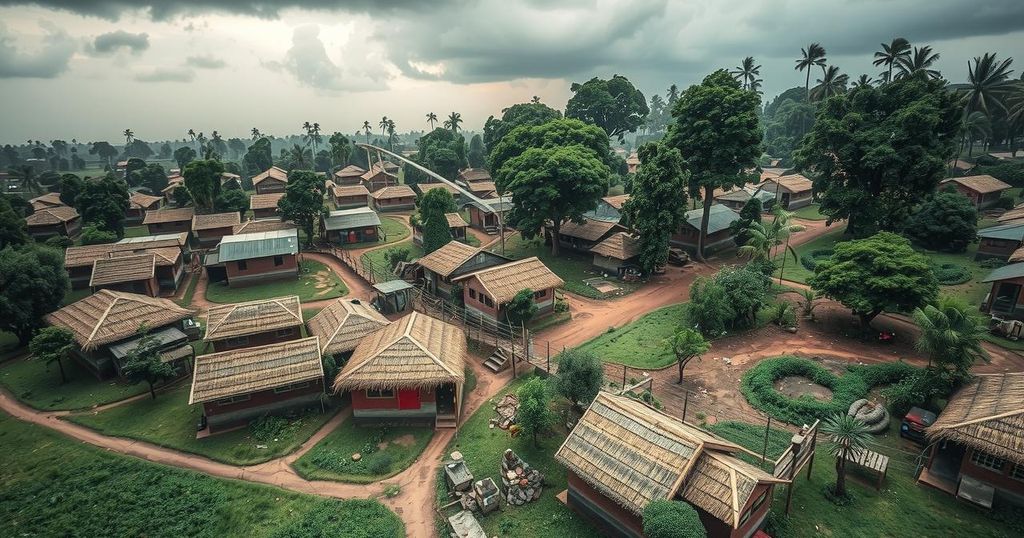Escalating Conflict in the Democratic Republic of Congo: A Humanitarian Crisis in Kwamouth
The conflict in Kwamouth territory, DRC, began in June 2022 as a land rights dispute between the Teke and Yaka communities. Ongoing violence has displaced nearly 146,000 people, with 2.78 million in urgent need of assistance. Throughout 2024, violent events have surged, particularly in regions close to Kwamouth, highlighting an urgent humanitarian crisis that requires immediate action.
The ongoing conflict in Kwamouth territory, situated in the Mai-Ndombe province of the Democratic Republic of the Congo (DRC), traces its origins to a longstanding dispute regarding land rights and customary fees between the indigenous Teke and the Yaka communities. Erupting in June 2022, this conflict has seen escalating violence, exacerbated by increasing population pressures, resource scarcity, and political manipulation, which have severely affected numerous provinces, including Kwango and Kwilu.
The Teke and Yaka have coexisted along the banks of the Congo River for generations; however, their relationship has become increasingly strained. While the Teke view themselves as the rightful custodians of the land, the Yaka have developed agricultural practices that have led to competition over resources. The violence has been marked by raids and counterattacks, resulting in numerous casualties and displacements across the region.
As of late October 2024, nearly 146,000 individuals have been displaced due to the violence, with significant humanitarian needs arising as a result. Reports indicate that 2.78 million people in the affected regions express urgent needs for shelter, food, health services, and protection assistance. The ongoing turmoil has also led to the deterioration of essential services and hindered humanitarian access, further complicating the crisis.
From January 1 to December 6, 2024, it has been reported that approximately 84 violent events occurred, resulting in 191 fatalities. Notably, violence has been particularly concentrated in western Kwilu and Mai-Ndombe provinces, where local militias have gained control of multiple localities, contributing to a precarious security landscape that continues to pose challenges for the local populace and humanitarian efforts.
The Democratic Republic of Congo has faced numerous conflicts over land, resources, and community rights. In the Kwamouth territory of the Mai-Ndombe province, the longstanding grievances between indigenous groups, particularly the Teke and Yaka, represent broader issues of resource allocation and ethnic tensions. These communities have a complex history; while the Teke claim ancestral ties to the land, the Yaka, having moved to the region to work as farmers, complicate the land rights dynamic. The resulting conflict reflects underlying societal challenges intensified by external pressures such as population growth and political strife.
The conflict in the Kwamouth territory underscores the complexities of land ownership, ethnic identity, and resource management in the DRC. With thousands displaced and millions in need of humanitarian assistance, swift and coordinated action is essential to address the pressing humanitarian crises and prevent further escalation of violence. The situation demands urgent international attention to facilitate peace and support the affected communities.
Original Source: reliefweb.int




Post Comment